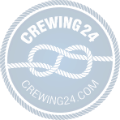
APRIL 3, 2013 — After having reached levels of slightly less than 40 million TEU annually in 2008, 2011 and 2012, box-handling in the North Sea ports of Antwerp, Rotterdam, Bremen and Bremerhaven, Hamburg and Zeebrugge— the North Range ports — is currently expected to finally break the 40- million-TEU threshold in 2013, though it is expected to be a close call.
The latest Global Port Tracker: North Europe Trade Outlook from Hackett Associates and ISL(Institute of Shipping Economics and Logistics) says that on the back of the weak economic performance of the Eurozone economies particularly at the end of 2012, total box handling in the Hamburg-Le Havre range came in slightly short of the 2011-figure (39.9 million TEU), reaching only 39.7 million TEU in 2012.
With consumers reluctant to spend their income in times of economic doubts, imports are expected to stagnate throughout 2013 and the Hackett/ISL reportexpects container-handling in the North Range ports to increase at a meager 1.0 percent in 2013, reaching a volume of 40.1 Million TEU.
Weak consumer demand in the European economies also spells further woes for already ailing liner shipping companies. From the end of 2011, the import of laden containers began to gradually develop gradually more slowly than the export of laden containers, meaning a higher proportion of unprofitable empty repositioning. In 2012, some four million empty TEUs were discharged in the North Range ports, an increase of 13 per cent over 2011. In 2013, ISL and Hackett Associates anticipates that this number will grow by another 14 per cent to 4.5 million.
Different dynamics are expected in the individual North Range ports. Rotterdam and Antwerp are expected to outperform the market average slightly, growing at rates of around 4 percent and 3 percent, respectively. Hamburg and Le Havre are expected to grow in line with the general market average whilst it is anticipated that the ports of Bremen/Bremerhaven and Zeebrugge are set to miss out on the growth dynamic. Particularly in Bremen/Bremerhaven, which did extraordinarily well in 2011 (+21.0 percent) and 2012 (+3.4 percent), some of the market shares acquired in the previous years had gotten lost at the turning of 2012/2013, setting the port up for a volume loss between 7 and 8 percent compared with the record year 2012.
![[ad-side]](http://www.crewing24.com/ad_images/89_banner.png)
![[ad-side]](http://www.crewing24.com/ad_images/83_banner.jpg)
![[ad-side]](http://www.crewing24.com/ad_images/102_banner.jpg)
![[ad-side]](http://www.crewing24.com/ad_images/80_banner.jpg)
![[ad-side]](http://www.crewing24.com/ad_images/105_banner.jpg)
![[ad-side]](http://www.crewing24.com/ad_images/77_banner.gif)
![[ad-side]](http://www.crewing24.com/ad_images/94_banner.png)
![[ad-side]](http://www.crewing24.com/ad_images/110_banner.png)
![[ad-side]](http://www.crewing24.com/ad_images/95_banner.gif)
![[ad-side]](http://www.crewing24.com/ad_images/82_banner.jpg)